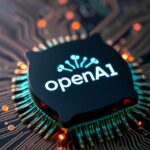
Nepal Blocks Social Media Platforms Amid Rule Breach
Nepal Blocks Facebook, Instagram, YouTube, and X Nepal has recently taken action to block access to major social media platforms including Facebook, Instagram, YouTube, and...


Nepal Blocks Facebook, Instagram, YouTube, and X Nepal has recently taken action to block access to major social media platforms including Facebook, Instagram, YouTube, and...

OpenAI Announces AI-Powered Hiring Platform OpenAI recently announced its foray into the hiring platform arena, setting the stage to compete with established players like LinkedIn....

XChat Encrypted DMs Expanding to More Users X is rolling out its encrypted direct message (DM) feature, XChat, to a broader audience. This expansion marks...

Fashion Retailers Partner for AI Styling Tool ‘Ella’ Several fashion retailers are collaborating to introduce ‘Ella,’ a personalized AI styling tool designed to enhance the...

TED’s Bold Bet: A $300M Fund for Climate Tech The journey for climate tech startups is notoriously challenging, particularly when they reach the dreaded “valley...

Mark Zuckerberg Sues Mark Zuckerberg In a bizarre turn of events, Mark Zuckerberg, the CEO of Meta, is reportedly suing another individual who also shares...

Stripe Builds New Blockchain with AI Leaders Stripe has announced the launch of Tempo a new Layer-1 blockchain developed in collaboration with Paradigm OpenAI Anthropic...